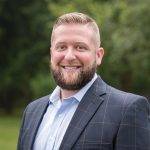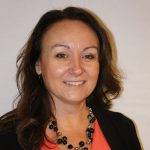- Solutions
- Solutions
- Home Health
- Hospice
- Life Plan Community
- Palliative Care
- Private Duty
- Senior Living
- Skilled Nursing
- Skilled Nursing
- Skilled Nursing Software
- Advanced Insights
- Customer relationship management
- Data and analytics
- Financial & operations management
- Marketing
- Nutrition management
- Referral management
- Regulatory compliance
- Retail management
- Resident engagement
- Revenue cycle management
- Skilled nursing interoperability
- Partners
- Blogs
- Resources
- About
- User Conference

3 easy ways to improve adult day services
Whether offered as a standalone service or within a hospital, nursing home, senior living center, or other facility, adult day care services have become a popular and cost-effective way for organizations to diversify their service offerings and help provide critical care to a growing elderly population.
In addition to giving individuals in need of care a safe and convenient place for socialization and medical assistance, adult day services also give their caregivers the time and flexibility to focus on other priorities they may have. And for healthcare organizations, these services can help enable better, more cost-effective management of chronic conditions.
As we discussed in an earlier blog post, technology can amplify the benefits of offering adult day services. For example, organizations may struggle to keep track of attendance or diagnoses with spreadsheets, but by leveraging EHR technology, this task can be carried out quickly and easily. Staff will also be able to track changes in condition for more attentive care, and provide assurance and peace of mind to caregivers by sending them photos and care updates throughout the day. And it’s all done with less administrative burden on workers, enabling them to focus more on resident care.
3 easy ways providers can benefit with adult day services
Amid an increase in billing and reimbursement complexities and a growing need to manage more patient and resident data than ever before, organizations may not be eager to integrate yet another service within their larger operations. But when done the right way, adding adult day services can provide a number of key operational and clinical advantages.
1. Easily manage medical and social information. With the need to manage and assess more data than ever before, integrating adult day services into an organization’s EHR system can help operators optimize care with a new source of data that can easily be accessed anywhere that individual needs care.
Keeping a closer watch on this data can also be an effective way to determine how many people become a long-term care resident. Some facilities are also leveraging this data as a marketing tool and as a feeder source to their census.
2. Integrate billing with revenue cycle management strategy. From private payers and insurers to Medicaid/HCBS HCFA 1500 and Medicare part B for outpatient services, organizations have a myriad of billing sources to manage. Adding adult day services can boost efficiency and potentially cost savings by automating and streamlining those sources, especially in relation to other services.
For instance, many organizations have the capacity to offer access to speech pathologists, occupational therapists, and physical therapists to assist with rehab and restorative needs. These organizations can gain even more value from their adult day care offerings by integrating all those services into a single, larger billing structure within their EHR system.
3. Help meet demand for tech-based care. Like most healthcare consumers, clients of adult day services and their family members haven’t just become accustomed to the use of technology, but actively seek it out. According to a 2022 Harris Poll cited by Sarai Rodriguez at Xtelligent Healthcare Media, about 80% of Americans “want the ability to use technology when managing their healthcare experience,” while 59% value convenience even more than having a designated care provider.
This represents a shift in the way that people feel about technology in healthcare, and it’s one that providers of adult day services can use to their benefit. As such, organizations who embrace technology to deliver more convenient care are more likely to enjoy higher satisfaction rates among the people they serve. And they’ll also have an effective marketing tool that can help drive further enrollment.
Looking for help or guidance with adult day services?
Looking for guidance on adding adult day services, and how you can leverage technology to do so? Connect with us to discuss how we can help you expand your offerings or request a demo today to see our technology in action.
Diane Mashburn
Diane Mashburn has 38 years of experience in long term care health information management. She has been with MatrixCare for 13 years and during that time held positions as Clinical Implementation Consultant, Director of Clinical Services and Project Management and her current position as Senior Solutions Consultant. Prior to joining MatrixCare, Diane worked as an Independent Health Information Management consultant in the Midwest and held positions as the Director of Health Information Management and Physician Office Manager at a Life Plan Community in eastern Kansas. Diane is credentialed as a Registered Health Information Technician and maintained her Licensed Nursing Home Administrator license until a few years ago.
Related Posts



See MatrixCare in action
Start by having a call with one of our experts to see our platform in action.
MatrixCare offers industry-leading software solutions. Thousands of facility-based and home-based care organizations trust us to help them improve efficiency and provide exceptional care.
© 2025 MatrixCare is a registered trademark of MatrixCare. All rights reserved.





